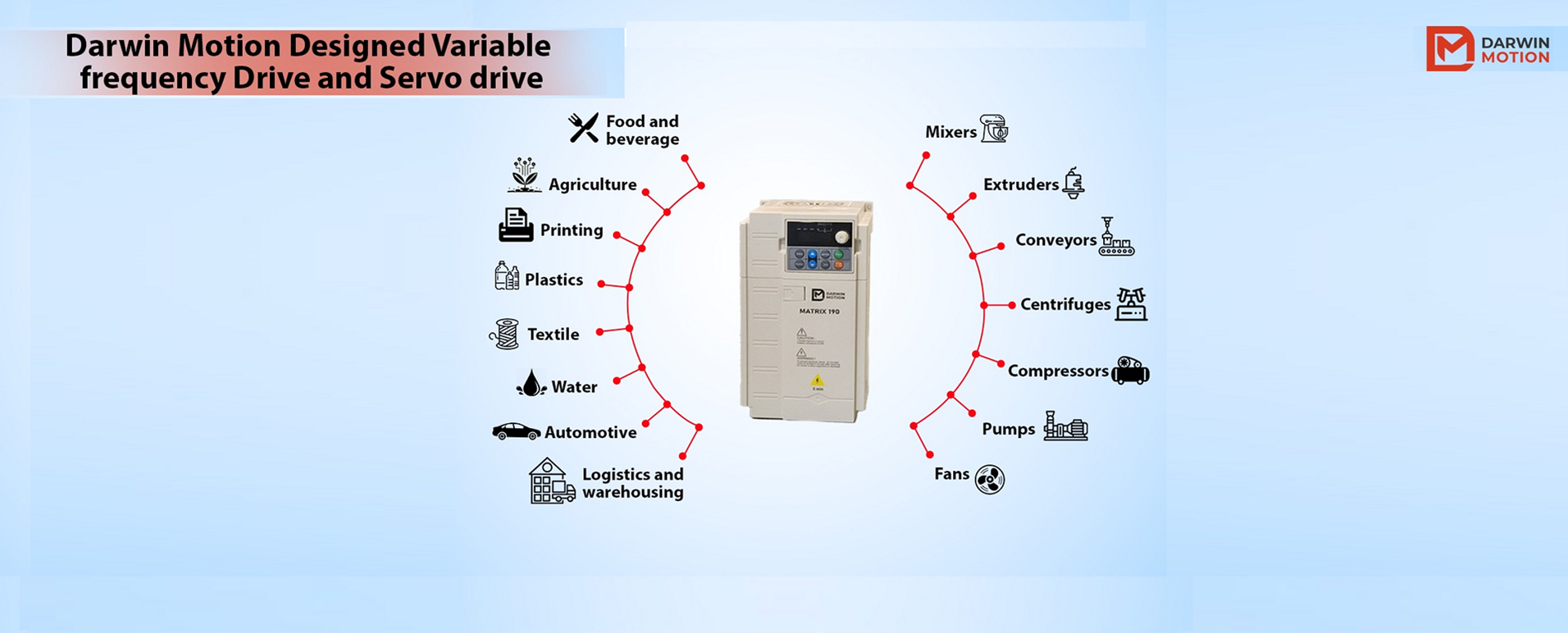Posted on 2nd Feb 2024

Variable Frequency Drives (VFDs) are extensively used in industrial and commercial applications for controlling the speed and torque of AC motors. Testing VFDs ensures their proper functioning, efficiency, and safety. Darwin Motion hvac manufacturers in india share some common testing applications for VFDs:
Functional Testing: This involves verifying that the VFD operates as intended according to its specifications. Functional tests may include:
Power-up and power-down sequences.
Start, stop, and speed control operations.
Response to input commands and feedback signals.
Fault detection and alarm functionalities.
Load Testing: Load testing assesses the performance of the VFD under varying motor loads. This may involve:
Applying different load levels to the motor and observing the VFD's response.
Testing the VFD's ability to maintain motor speed and torque under different load conditions.
Evaluating the VFD's efficiency and energy consumption at different load levels.
Harmonic Analysis: VFDs can introduce harmonics into the electrical system, which may cause issues such as voltage distortion and overheating of equipment. Testing for harmonics involves:
Measuring and analyzing harmonic distortion in the VFD's input and output voltage and current waveforms.
Assessing compliance with industry standards and regulations regarding harmonic emissions.
Implementing harmonic mitigation techniques if necessary, such as adding harmonic filters or line reactors.
Transient Response Testing: This involves assessing the VFD's ability to respond to rapid changes in load or operating conditions. Transient response testing may include:
Simulating sudden load changes and observing the VFD's response time and stability.
Testing acceleration and deceleration profiles under dynamic load conditions.
Verifying that the VFD can quickly recover from fault conditions or disturbances.
Communication Testing: Many VFDs support communication protocols such as Modbus, Profibus, or Ethernet/IP for integration with control systems and SCADA (Supervisory Control and Data Acquisition) systems. Communication testing involves:
Verifying proper communication between the ac drive and external devices such as PLCs or HMI (Human-Machine Interface) panels.
Testing data exchange, command execution, and parameter monitoring via communication interfaces.
Ensuring data integrity, security, and reliability of communication links.
Safety Testing: VFDs play a critical role in ensuring the safety of motor-driven equipment. Safety testing may involve:
Verifying proper operation of safety features such as overload protection, overvoltage protection, and fault detection.
Testing emergency stop functionality and fault response procedures.
Assessing compliance with safety standards and regulations applicable to motor control systems.
Efficiency Testing: Assessing the energy efficiency of VFDs is crucial for optimizing energy usage and reducing operating costs. Efficiency testing may include:
Measuring input power consumption and output power delivered to the motor under various operating conditions.
Calculating efficiency and power factor at different load and speed levels.
Identifying opportunities for energy savings through parameter optimization or motor replacement.
Environmental Testing: VFDs may be exposed to harsh environmental conditions such as temperature extremes, humidity, dust, or vibration. Environmental testing involves:
Subjecting the VFD to environmental stress tests to assess its reliability and durability.
Verifying compliance with environmental standards and specifications relevant to the application and installation location.
Endurance Testing: This involves subjecting the VFD to prolonged operation under normal or accelerated conditions to assess its long-term reliability and durability. Endurance testing may include:
Continuous operation at rated load and speed for extended periods.
Cycling the VFD through repeated start-stop or acceleration-deceleration cycles to simulate real-world usage patterns.
Monitoring performance parameters and detecting any signs of degradation or wear over time.
Regulatory Compliance Testing: Ensuring that VFDs comply with relevant regulatory requirements and industry standards is essential for market acceptance and safety certification. Regulatory compliance testing may involve:
Testing for electromagnetic compatibility (EMC) to assess the VFD's susceptibility to electromagnetic interference (EMI) and its emissions.
Compliance testing with safety standards such as UL (Underwriters Laboratories) or CE (Conformité Européenne) for electrical safety and performance.
Documentation and certification of compliance with regulatory requirements applicable to specific industries or regions.
Overall, comprehensive testing of VFDs is essential to ensure their reliable operation, performance, and safety in a wide range of industrial and commercial applications. Testing should be conducted according to established procedures, standards, and best practices to identify any issues early in the development or deployment process and to mitigate risks effectively.
Darwin Motion offers Micro Drive- Matrix 900, DR Matrix 350 / Solar Drive, High Frequency Drive - DR Matrix 500, High Performance Drive - DR Matrix 680, Regenerative Drive - DR Matrix 880